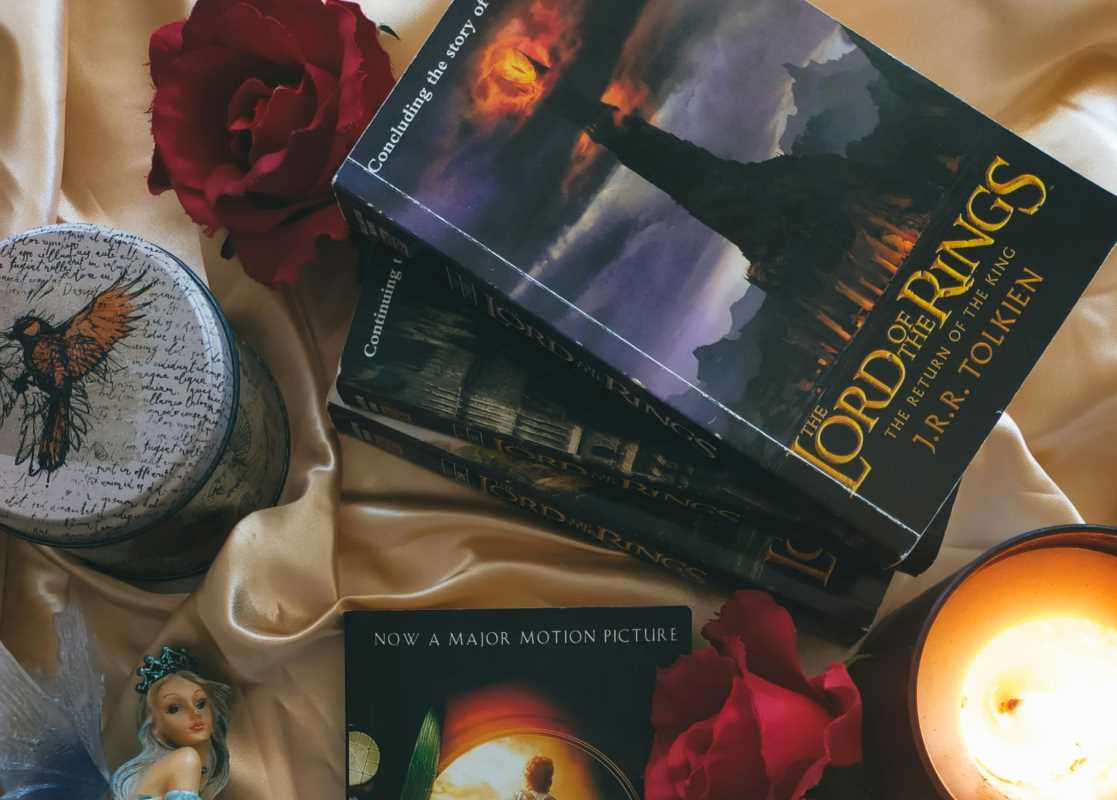For fans of the fantasy genre, there are quintessential novels that have not only shaped the genre but also stood the test of time, continuing to enchant readers through generations.
These books brim with vivid storytelling, thought-provoking themes, and enchanting worlds. Whether you're drawn to epic quests, magical adventures, or stories full of mystery and wonder, these timeless tales are essential additions to any fantasy enthusiast’s library.
"The Lord of the Rings" by J.R.R. Tolkien
It would be impossible to discuss classic fantasy without mentioning "The Lord of the Rings" by J.R.R. Tolkien. First published in the mid-20th century, this epic trilogy is often considered the bedrock of modern fantasy literature. The tale follows Frodo Baggins and an eclectic group of companions tasked with destroying the One Ring to thwart the dark lord Sauron’s attempts at domination.
The trilogy is renowned not only for its intricate storytelling but also for its masterful world-building. Middle-earth, with its diverse races, languages, and histories, feels as real as the lands we inhabit.
Tolkien’s meticulous attention to detail laid the foundation for countless fantasy worlds that followed. The themes of friendship, sacrifice, and resilience resonate deeply across cultures, making the work relatable no matter the age or background of the reader.
"The Lord of the Rings" inspired generations of writers, filmmakers, and artists. Peter Jackson’s cinematic adaptation brought the story to an entirely new audience, earning global acclaim and multiple Academy Awards.
Its influence can also be seen in video games, music, and even real-world naming conventions—New Zealand, where the movies were filmed, is often nicknamed "Middle-earth."
"The Hobbit" by J.R.R. Tolkien
Before "The Lord of the Rings," Tolkien gave us "The Hobbit", an enchanting tale of Bilbo Baggins, a reluctant hero who sets off on a thrilling adventure with thirteen dwarves in search of treasure guarded by the dragon Smaug.
Though written as a children’s book, "The Hobbit" is an essential read for fans of any age. It introduces readers to the heart of Tolkien’s storytelling—the ordinary individual thrust into extraordinary circumstances. The novel’s lighthearted tone, paired with thrilling moments like Bilbo’s encounter with Gollum, serves as the perfect gateway into Tolkien’s greater Middle-earth saga.
"The Hobbit" sparked the creation of countless other “reluctant hero” tales that became staples of the fantasy genre. Like its counterpart trilogy, it also received a cinematic adaptation, rekindling interest in Tolkien’s works among new generations of readers and viewers.
"Alice's Adventures in Wonderland" by Lewis Carroll
Published in 1865, Lewis Carroll’s "Alice's Adventures in Wonderland" is a whimsical masterpiece that transports readers into the bizarre and fantastical world of Wonderland.
Following Alice’s surreal encounters with eccentric characters like the Mad Hatter, the Cheshire Cat, and the Queen of Hearts, the novel offers a delightful mix of whimsy and wonder.
Beyond its surface absurdity, "Alice's Adventures in Wonderland" is filled with clever wordplay, satire, and puzzles. Carroll’s unique style set the tone for countless fantasy tales that push the boundaries of logic and reason, challenging readers to think creatively.
The novel has been adapted countless times, from Disney’s beloved animated film to Tim Burton’s darker live-action interpretation. Its influence extends to fashion, music, and even psychology—concepts such as the “rabbit hole” have entered popular lexicon, embodying curiosity and exploration of the unknown.
"Dracula" by Bram Stoker
For those who favor darker tones in their fantasy, Bram Stoker’s "Dracula" is a landmark novel. Published in 1897, the story follows Jonathan Harker and his companions as they confront Count Dracula, the archetype of the modern vampire.
"Dracula" isn’t just a gothic novel—it’s a profound exploration of fear, both supernatural and societal. The story touches on themes of sexuality, immigration, and the conflict between tradition and modernity.
Stoker’s atmospheric storytelling opened the gates for dark fantasy to flourish.
Count Dracula remains one of literature’s most enduring characters. His influence can be seen in films, TV shows, and even modern vampire fiction, from Anne Rice’s "Interview with the Vampire" to the "Twilight" series.
The novel cemented the vampire mythos in popular culture.
"The Chronicles of Narnia" by C.S. Lewis
C.S. Lewis’s "The Chronicles of Narnia" is a seven-book series that has captured the hearts of children and adults alike. The best-known installment, "The Lion, the Witch, and the Wardrobe", tells the story of four siblings who stumble into the magical land of Narnia, where they battle against the White Witch with the help of the noble lion, Aslan.
The series vividly explores concepts like good versus evil, faith, and sacrifice while remaining accessible to young readers. Lewis’s ability to weave deep moral lessons into an engaging narrative makes Narnia a standout work in fantasy literature.
Countless adaptations of the Narnia series have been produced, most notably the films by Walt Disney Studios. The allegorical nature of the series has also sparked discussions about its Christian undertones, appealing to readers of both religious and secular backgrounds.
"A Wrinkle in Time" by Madeleine L'Engle
"A Wrinkle in Time" is a groundbreaking work of science fantasy, introducing readers to the precocious Meg Murry, her genius brother Charles Wallace, and their quest to save their father. Along the way, they encounter cosmic beings and travel through dimensions, challenging the boundaries of time and space.
L’Engle’s novel blends philosophical ideas, science themes, and fantasy elements seamlessly.
Themes of love, courage, and individuality make it a touching read. It was also one of the first major fantasy novels to feature a young female protagonist, inspiring future authors to center girls in their fantastical tales.
"A Wrinkle in Time" has been adapted into film and stage productions. Its influence on the science fantasy subgenre is undeniable, serving as a precursor to novels like "His Dark Materials" by Philip Pullman.
"The Once and Future King" by T.H. White
T.H. White’s "The Once and Future King" reimagines the legend of King Arthur in a modern and philosophical context. Beginning with young Arthur’s tutelage under Merlin, the book explores politics, morality, and the human condition.
White’s wit and insight elevate the traditional Arthurian tale into a timeless reflection on leadership and responsibility. His portrayal of flawed, nuanced characters has influenced the darker, morally complex fantasy stories we see today.
The novel’s themes of chivalry and justice remain relevant. Countless fantasy novels, films, and TV shows—like "Game of Thrones"—owe a debt to Arthurian legend and White’s reimagining of it.
"The Earthsea Cycle" by Ursula K. Le Guin
Ursula K. Le Guin’s "The Earthsea Cycle", beginning with "A Wizard of Earthsea", is a masterful exploration of magic, self-discovery, and balance. The series follows Ged, a young wizard, as he grapples with personal and universal challenges while navigating the world of Earthsea.
Le Guin’s series brought nuanced, human-centered storytelling to the fantasy genre. Her exploration of identity, power, and ethics challenges the simplistic good-versus-evil narratives seen in earlier works.
Le Guin carved a space for diverse perspectives in fantasy. Her focus on multicultural societies and environmental themes has paved the way for inclusive contemporary fantasy. The series’ magic system also set the bar for the intricate rules of magic in modern fantasy.
Timeless Appeal
What makes these novels timeless is their universal appeal—whether it’s the deeply relatable themes, complex characters, or imaginative worlds, these stories resonate through the ages. They have influenced how we approach fantasy storytelling and continue to shape modern works in the genre.
For fantasy enthusiasts, these classics offer a window not just into fantastical worlds, but into the possibilities of what storytelling can achieve. Whether you’re stepping into Tolkien’s Middle-earth, Lewis’s Narnia, or Le Guin’s Earthsea, you’re embarking on a literary adventure that will stay with you forever.







